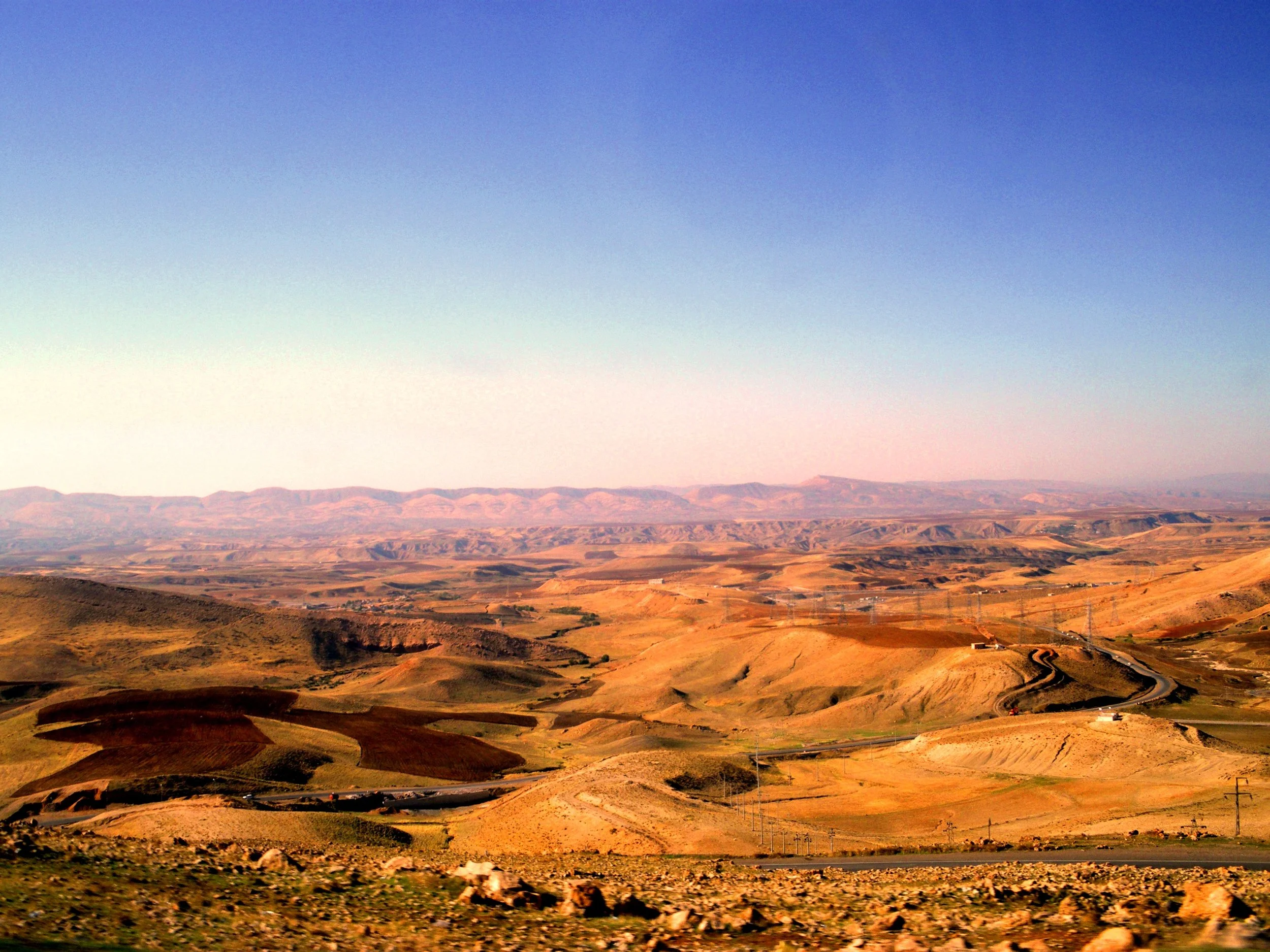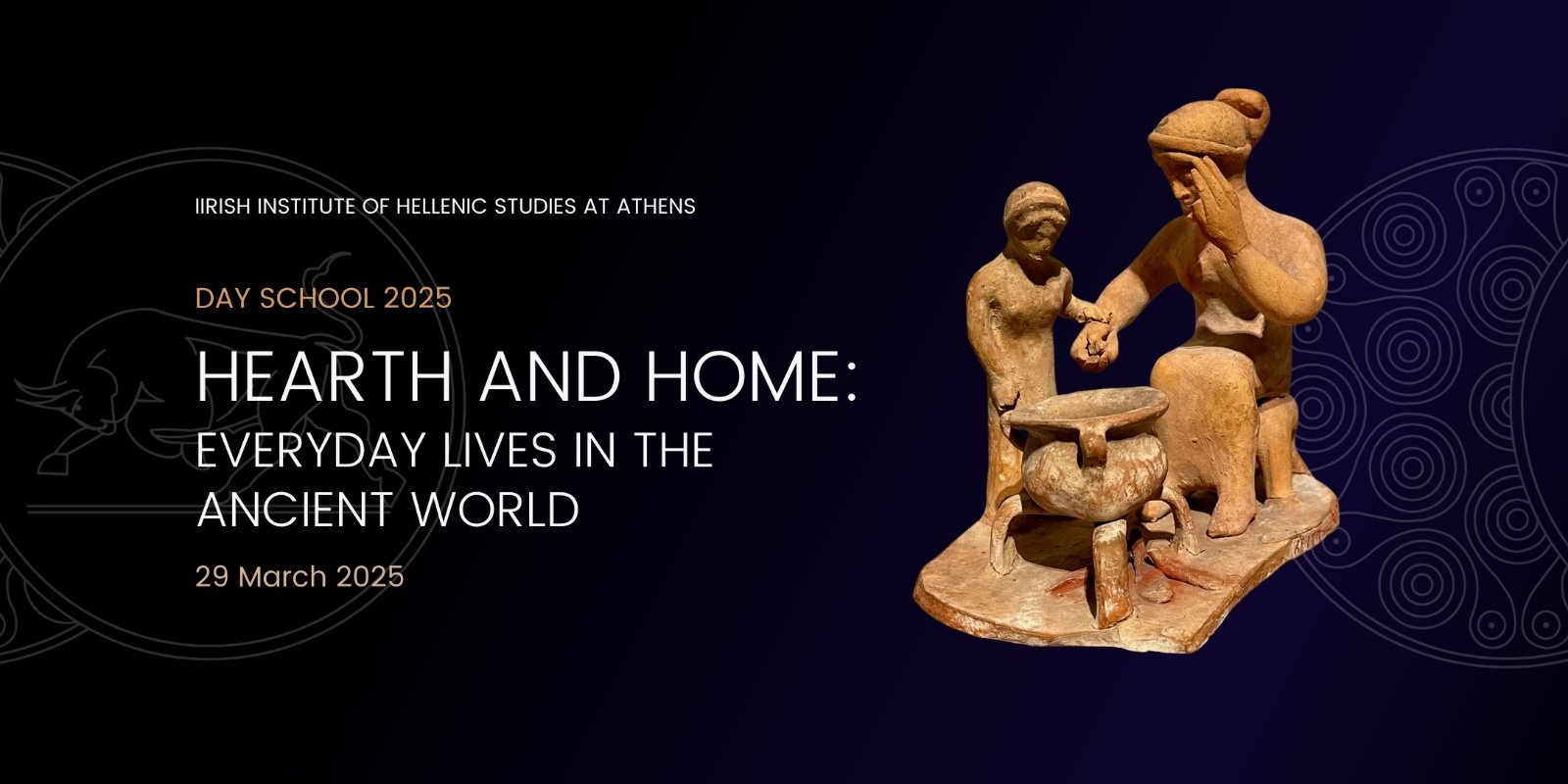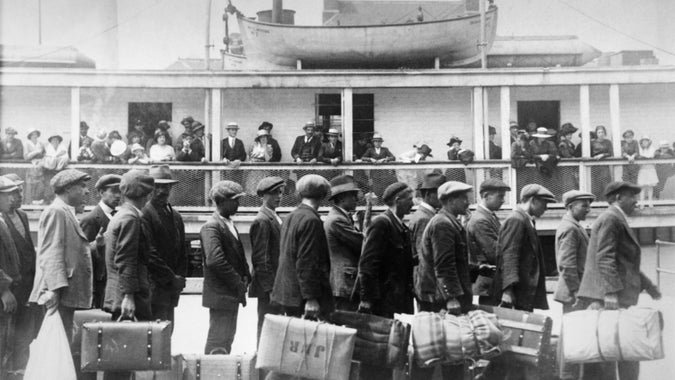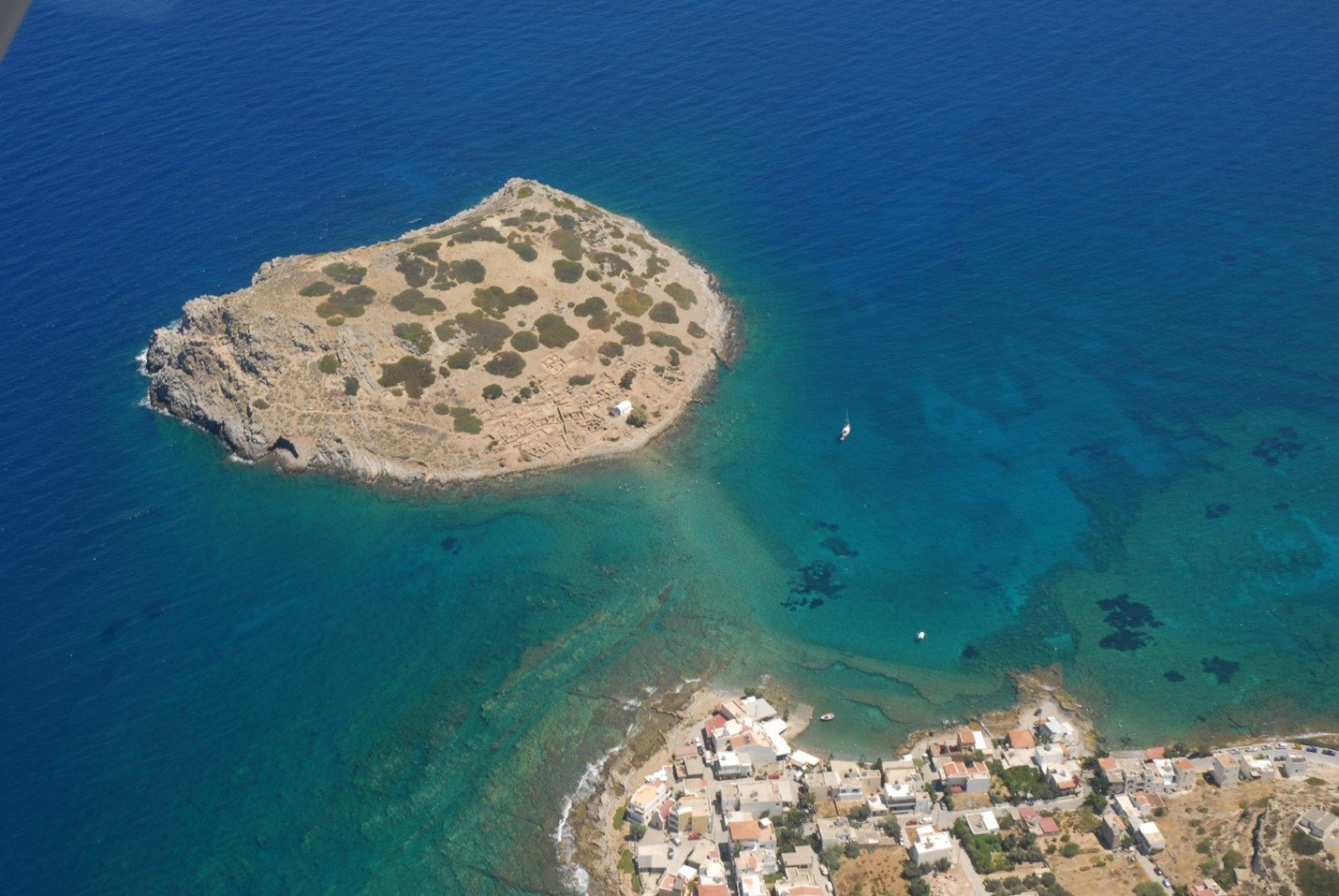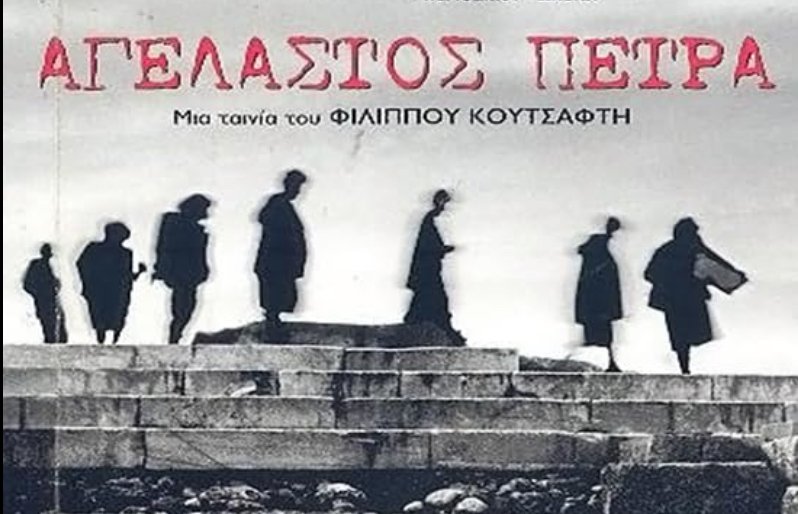IIHSA Events

Cultural Heritage Management Seminar Series 7: Adam Behan, Irish Popular Music, Cultural Heritage, & the Institutionalisation of Rock Music in the 1970s
You are invited to our Cultural Heritage Management Seminar Series 7. This online talk on March 20 2025 at 7.00 pm (Greek time), 5 pm (Irish time) is given by Dr Adam Behan (Maynooth University), Irish Popular Music, Cultural Heritage, & the Institutionalisation of Rock Music in the 1970s. Registration information below.
Abstract: Though it is a relatively recent phenomenon, popular music has already become part of the processes of cultural preservation and national heritage-making in Ireland, often for commercial ends and tourist appeal. But of the many kinds of popular music that should be part of these efforts, it is rock music that is usually the focus of attention. Taking this problem as a point of departure, in this paper I examine the entanglement of Irish rock culture with the country’s emerging domestic music industry in the late 1970s, especially in terms of the founding of Hot Press (Ireland’s longest running, most prominent music magazine), the launch of RTÉ Radio 2, and the growing university gig circuit, out of which many of the most influential managers and promoters emerged. I argue that these developments involved a larger process of the institutionalisation of rock music in Ireland, one that has implications for which kinds of Irish popular music are readily remembered, valued and considered worth commemorating in terms of the nation’s heritage. Though I leave open the question of how Irish popular music should best be conserved going forward, I argue that only by grappling with this historical problem of institutionalisation can we begin instead to formulate an approach that is diverse in its inclusion of genres and subcultures, many of which are precarious and always at risk of disappearance.
Biography Adam Behan is a musicologist who works on western music in the twentieth century, both classical and popular. He holds degrees from Trinity College Dublin and the University of Cambridge, and is currently an IRC Postdoctoral Research Fellow at Maynooth University, where he is writing a book about Irish popular music at the end of the twentieth century. His research has won awards including the Karl Geiringer Scholarship from the American Brahms Society and the Westrup Prize from the Music & Letters Trust. He is a member of the SMI Council and his work appears in several journals, including Music Analysis, Twentieth-Century Music, Music & Letters, and the Journal of the Royal Musical Association.
To register for the seminar online: https://www.eventbrite.com/e/iihsa-culture-heritage-management-seminar-series-7-tickets-1280548648479

Dr Giorgos Papantoniou, Landscape Archaeology and Social Transformations: Voices from Cyprus
You are invited to a hybrid lecture (online and at the IIHSA premises in Athens) on Thursday March 6th 2025 at 7.00 pm (Greek time) by Dr Giorgos Papantoniou (Trinity College Dublin) on ‘Landscape Archaeology and Social Transformations: Voices from Cyprus.’
Abstract: A holistic approach to landscape archaeology considers ‘landscape’ as an expression of society within a system of cultural meaning; it gives equal consideration to built and natural environments, as well as humans and movable objects, seeking to ‘read’ place-making and materialisation of ideologies. This paper, using Cyprus as a case-study, aims to raise issues for discussion about the changes in the use and concept of sacred landscapes as developed in the Archaic and Classical periods under the Cypriot kings (the basileis), but then continued to function in a new imperial environment, that of the rule of the Ptolemaic strategos and later of the Roman proconsul. This diachronic, inter-disciplinary and Cypro-centric approach reveals that the new politico-economic Hellenistic and Roman structures were, as in the preceding periods, supported by the construction of symbolically charged sacred landscapes. Thus, during the long history of the island, we may identify three pivotal phases: first the consolidation of the Cypriot polities and the establishment of a ‘full’ sacred landscape as shown by the rise of the number of urban and extra-urban sanctuaries; then the transition from segmented to unitary administration under Ptolemaic and Roman imperial rule and the consolidation of a more ‘unified sacred landscape’; finally, as a conclusion, the establishment of a number of Christian bishoprics on the island and the movement back to a ‘full’ sacred landscape as shown by the establishment of a great number of urban and extra-urban basilicas.Case-studies will also be drawn from the archaeological surface survey project in the Xeros River Valley in Larnaka, where we have recently combined landscape, historical and community archaeology to address issues related to contemporary cultural heritage and societal transformations, such as healing of negative memories and contribute to various communities’ wellbeing. Moving beyond the particular example of Cyprus, this contribution offers a paradigm for the implications that the employment of the ‘sacred landscapes’ concept may have when addressing issues of socio-political and socio-economic transformations.
Please reserve an in person place:
https://www.eventbrite.com/e/iihsa-lecture-tickets-1262454628779?aff=oddtdtcreator
or register to join us online:
https://tcd-ie.zoom.us/meeting/register/VhOTsAsFS7uttQrz0w66Iw

Dr Giota Barlagianni, ‘Death and Ritual in the Ubaid Period: Social Perspectives on Mortuary Practices in 5th Millennium B.C. Mesopotamia.’
You are invited to an in person lecture at the IIHSA premises in Athens on February 20 2025 at 7.00 pm (Greek time) by Dr Giota Barlagianni, ‘Death and Ritual in the Ubaid Period: Social Perspectives on Mortuary Practices in 5th Millennium B.C. Mesopotamia.’
The archaeological evidence related to the material assemblage of the Ubaid culture remains elusive in determining whether its spread was due to expansion or colonisation without a centralised authority. The Ubaid culture lasted approximately 2 millennia (from 6500 to 4900 BCE) and eventually spread from southern Mesopotamia to a vast area including Saudi Arabia, northern Mesopotamia, northern Syria, southern Anatolia and western Iran. However, the notable shortage of prestige goods and raw materials, as well as the poor burial offerings, suggest that Ubaid communities were largely unstratified. It was only at the end of this period that crystallized mortuary practices began to emerge, with some examples of differentiation in burial contexts. A closer examination of the Ubaid ritual reveals how death was viewed and dealt with, and how this concept developed in the ever-expanding society. The diversity of funerary customs in this period reflects a shift towards more complex social structures. In this context, ancestor worship emerged and burial ceremonies became increasingly elaborate.

Dr Georgios Doudalis, A Last Time Together: Understanding Social Behaviors in Times of Peril at Mochlos during the LM IB period.
You are invited to an IIHSA Lecture (online) on Friday January 31st 2025 at 7.00 pm (Greek time)/ 5.00 pm (Irish time) / 12.00 (EST) by Dr Georgios Doudalis (University of North Carolina, Greensboro), ‘A Last Time Together: Understanding Social Behaviors in Times of Peril at Mochlos during the LM IB period.’
The settlement at Mochlos stands out for its distinct chronological phases spanning from the Early Bronze Age to the Hellenistic period. This extensive period of occupation is marked by building, rebuilding, expanding, or shrinking of the settlement, due to natural causes (earthquakes?) or human interference. At the end of the LM IB, Mochlos seems to face such destruction. The question I will respond to is: Do we have evidence of communal behavior before such abandonments? And how these could be explained through the examination of the material culture? In this spectrum, I will examine the so-called “closure” ceramic deposits from the Ramp, the South Terrace of the Ceremonial Building B.2, and the material from the “Theatral Area” and the adjacent rooms. Then, I will tangle with ideas about the maintenance of social distinctions in times of peril and the preservation of communal identity through ancestor worshipping as it is expressed through material and space choice.
Registration: https://www.eventbrite.com/e/1216240009609?aff=oddtdtcreator
If the event appears to be sold out, please contact us at irishinstitutegr@gmail.com and we will provide you with the Zoom link.

Cultural Heritage Management Seminar Series 6: Ros Ó Maoldúin, The Institute of Archaeologists of Ireland: Representation, Collaboration and Advocacy
This seminar is the sixth in our series of theoretical seminars on the topic of ‘Cultural Heritage Management: Laws, regulations, innovative management practices, participation of local communities, the impact of climate change on archaeological sites and European initiatives’. It is directed at graduate students who are interested in the topic.
Abstract: The Institute of Archaeologists of Ireland (IAI) is the representative all-island organisation for professional archaeologists working in Ireland and Northern Ireland. Through the representation of our members, our aim is to advance and strengthen the profession of archaeology in Ireland. Our vision is that we will have a vibrant and sustainable archaeological profession that actively contributes to the protection of our archaeological resource, which in turn contributes to the social and economic wellbeing of the entire community. This seminar will begin with a short history of our Institute and then provide a brief overview of our current initiatives, future strategy and plans.
Dr Ros Ó Maoldúin is Chair of the Institute of of Archaeologists of Ireland
Date: December 12th 2024 at 17.00 (Ireland)/19.00 (Greece)/12.00 pm (standard eastern time). The seminar will take place online.
In order to participate, please register by contacting us at irishinstitutegr@gmail.com

Sophie McGurk: A Certain Greek Kinship: Ireland, Ancient Greece and Hibernian Philhellenism
You are invited to an IIHSA Online Lecture on Thursday October 31, 2024 at 5.00 pm (Irish time) / 7.00 pm (Greek time)/12.00 (EST) by Sophie McGurk (Trinity College Dublin): A Certain Greek Kinship: Ireland, Ancient Greece and Hibernian Philhellenism.
Abstract
The study of Classics in Ireland, and the respect it commanded, dates back to the beginning of the Middle Ages. However, it was not until 1976, that W. B. Stanford released his seminal work, ‘Ireland and the Classical Tradition’. This was a work that was the first of its kind, in what Stanford rightly called a “neglected field”. It is essentially a catalogue of classical interaction in Ireland, providing a chronological and interdisciplinary overview. However, my paper aims to show how terms like the ‘Irish Classical Tradition’ are, in fact, lacking and do not portray the tensions that arise from the complex and unique cultural mosaic that is present in the history of Irish classicism.
This paper will illustrate how I see classicism in Ireland as three-fold: as resulting indirectly and with literature at its root yet remaining pervasive in society and civic life; as consistently philhellenic; and as characterised by non-specialists in popular opinion. For this reason, in my research, I have elected to use a new term to denote this very non-traditional tradition: ‘Hibernian Philhellenism’. Thus, my re-naming of this tradition goes beyond contributing to an established frame but, rather, works to re-define said frame.
This paper will examine the factors that have contributed to my designation of this term and offer an exploration into the unique relationship that Ireland has to Greek antiquity, a relationship that was once referred to by J. M. Synge as a “certain Greek kinship,” while also proposing a new way of thinking about 'tradition' that moves beyond the model of succession that is so readily accepted in Western thinking.

Eleanor Kellett: Tattooed Thracian Women in Attic Pottery.
You are invited to an IIHSA Online Lecture on Monday September 30, 2024 at 5.00 pm (Irish time) / 7.00 pm (Greek time)/12.00 (EST) by Eleanor Kelley (University College Dublin), Tattooed Thracian Women in Attic Pottery.
Abstract
This paper will explore the depictions of tattooed Thracian women in Attic pottery, focusing on reoccurring tattoo designs and their locations on the body. These depictions provide valuable insights into how Thracian women were perceived by the Athenians and highlight the cultural significance of tattoos in ancient Thrace. The study categorizes these scenes on Attic pottery into three distinct groups: enslaved Thracian women, free Thracian women killing Orpheus, and free Thracian women without Orpheus.
The paper will also address critical issues regarding these depictions, including the potential biases and limitations of interpreting Thracian tattoos through the lens of Attic pottery. It emphasizes the importance of avoiding the imposition of contemporary beliefs and meanings of tattoos onto ancient practices, advocating for a more nuanced approach to understanding the cultural significance of tattoos in Thracian society.
What can be gathered about the tattooing practices of Thracian women through these depictions? How do these depictions compare to the literary sources and archaeological record? What do these artistic representations reveal about Athenian views of Thracian women? Are tattoos evidence that Thracian women exercised some form of bodily autonomy? These are some of the questions I will attempt to answer in this talk, drawing on both ancient evidence and modern theories of bodily autonomy to provide new perspectives on these underrated forms of art.
Online registration via Eventbrite or contact us at irishinstitutegr@gmail.com

Cultural Heritage Management Seminar Series 5: Muiris O’Sullivan, Exploring heritage management issues in Ireland
This seminar is the fifth in our series of theoretical seminars on the topic of ‘Cultural Heritage Management: Laws, regulations, innovative management practices, participation of local communities, the impact of climate change on archaeological sites and European initiatives’. It is directed at graduate students who are interested in the topic.
Abstract: This seminar deals with two locations in Ireland, one the World Heritage Site at Brú na Bóinne, county Meath, and the other a less well-known site in Knockroe townland on the border between counties Kilkenny and Tipperary. Both are passage tomb complexes, megalithic sites from the centuries immediately before 3,000 BCE, and both occur in areas of primarily agricultural activity. Both attract considerable numbers of visitors at the winter solstice, and both feature megalithic art from the Stone Age. The associated conservation and management issues are similar but not identical. The seminar is particularly concerned with the differences, how they might be explained and whether they have implications for future policy.
Muiris O’Sulivan is Emeritus Professor of Archaeology at University College Dublin
Date: Thursday April 4th 2024, at 17.30 (Ireland)/19.30 (Greece)/12.30 pm (standard eastern time). It will take place online.
In order to participate, please simply register via EventBrite: https://www.eventbrite.com/e/4th-theoretical-seminar-tickets-872361345267?aff=oddtdtcreator
For any questions contact us at irishinstitutegr@gmail.com

Cultural Heritage Management Seminar Series 4: P. Kassimi, I. Nanopoulou, I. Tzonou, ‘Corinth’s Master Plan: A Collaborative Project Towards an Inclusive, Interactive and Sustainable Heritage’
This event is postponed to a future date.
This seminar is the fourth in our series of theoretical seminars on the topic of ‘Cultural Heritage Management: Laws, regulations, innovative management practices, participation of local communities, the impact of climate change on archaeological sites and European initiatives’. It is directed at graduate students and early career researchers who are interested in the topic.
Abstract: People have been living in Corinth for the last nine millennia. A diverse, multi-ethnic and polyglot community has resided here since antiquity, and in the modern day this diversity persists as locals interact daily with tourists, students, and scholars from all over the world. Since 1896, archaeologists affiliated with the American School of Classical Studies have been exploring the site in a productive collaborative effort with local archaeologists, technicians, and workers under the auspices of the Greek Ministry of Culture and Sports and the Ephoreia of Antiquities of Corinthia. Our day-to-day work on site serves to emphasize that it is a creation of people before us and like us. Corinth’s universal value for human history and patrimony is exactly this coexistence of the archaeological landscape with a thriving living community in a most advantageous setting in terms of resources and potential for development. A master plan for this landscape was initiated in 2001 and has been building momentum in the last 8 years. Three bodies, the Ephoreia of Antiquities of the Corinthia with the Ministry of Culture, the ASCSA-Corinth Excavations, and the architectural office of Papagiannis and Associates, are the leading forces behind the process to make the site enjoyable and understandable to both locals and tourists, archaeologists, and the general public. In this seminar we discuss how this whole process of the master plan has been evolving as the interests of the various stakeholders are reconciled: for example, the architects’ interest in integrating the site with the modern community; the archaeologists’ interest in preserving the complexity of the site for future research, and at the same time inviting the public to actively participate rather than passively consume knowledge; and the ministry’s interest in prioritizing site access and clarity for the sake of tourism. In Corinth we aspire to share our knowledge of the past with the local and the global community for an inclusive, interactive and sustainable heritage. We believe our shared humanity from the past to the present can help us educate future generations for a world of empathy.
Panagiota Kassimi, Director of the Ephorate of Antiquities of Corinthia.
Ivi Nanopoulou, Head of the architectural firm, Papagiannis and Associates. Design consultant for the management plan.
Ioulia Tzonou, Associate Director of the Corinth Excavations of the American School of Classical Studies.
The seminar will take place on Thursday, February 8th at 19.00 pm (Greece time), 17.00 (Ireland time), 12.00 pm (Eastern Standard Time). It will be held online and in order to reserve a post please register via Eventbrite below. If you have any difficulties in registering, please contact us at irishinstitutegr@gmail.com

Cultural Heritage Management seminar series 3: Ian Doyle, Community Archaeology in Ireland
This seminar is the third in our series of theoretical seminars on the topic of ‘Cultural Heritage Management: Laws, regulations, innovative management practices, participation of local communities, the impact of climate change on archaeological sites and European initiatives’. It is directed at graduate students who are interested in the topic.
Abstract: Almost every townland and parish in Ireland contains a monument, be it a prehistoric burial or a ruined medieval parish church with a cemetery, a medieval castle, or a monument from the more recent past such as a lime kiln or old forge. The wider Irish landscape contains 120,000 known archaeological sites/monuments which are protected by national legislation. The scale of caring for this resource necessitates a partnership approach with local communities. This presentation will look at recent developments in community archaeology in Ireland. This will include details of policy and structures to support community focused archaeological heritage events as well as public surveys, the practice of communities ‘adopting’ monuments and online digital supports. It will look at a range of not-for-profit community archaeology projects in Ireland, some of which the author has been involved in through a day to day role in working for a State organization, the Heritage Council of Ireland
Ian Doyle is the Head of Conservation with the Heritage Council of Ireland
Date: Thursday January 11th 2024, at 17.30 (Ireland)/19.30 (Greece)/12.30 pm (standard eastern time). It will take place online.
In order to participate, please simply register via EventBrite: https://rb.gy/2b1rve
In case you face any difficulties in registering, please contact us at irishinstitutegr@gmail.com

Cultural Heritage Management seminar series 2: Dr Clare Tuffy, Connecting with our Past
This seminar is the second in our series of theoretical seminars on the topic of ‘Cultural Heritage Management: Laws, regulations, innovative management practices, participation of local communities, the impact of climate change on archaeological sites and European initiatives’. It is directed at graduate students who are interested in the topic.
Abstract: This seminar discusses the importance of creating opportunities for people, in particular local communities to connect in meaningful ways with their cultural heritage. The focus of this talk is on the World Heritage property of Brú na Bóinne (Newgrange, Dowth & Knowth) where the benefits for the communities, visitors and the monuments are outlined. The winter solstice experience at Newgrange will be discussed as well as the impact of broadcasting the solstice sunrise live from inside the burial chamber to a worldwide audience during the pandemic. New research into the solstice alignment resulted in fantastic high-resolution images of the solar illumination of the burial chamber which will be shown as part of the presentation.
Dr Clare Tuffy worked for The Office of Public Works in Ireland at Brú na Bóinne for over 40 years. She will share her intimate knowledge of the monuments and her insights into why it is so important to have people making personal connections to the monuments not only as part of the regular visitor experience but also for events big or small on special occasions.
Date: Thursday December 7th 2023, at 17.30 (Ireland)/19.30 (Greece)/12.30 pm (standard eastern time). It will take place online.
In order to participate, please simply register via EventBrite: https://shorturl.at/eqR08
In case you face any difficulties in registering, please contact us at irishinstitutegr@gmail.com

Cultural Heritage Management seminar series 1: William Megarry (Queen’s University Belfast ), “Crises, Conservation and Change: Global Challenges, Heritage and the Futures of our Past.”
This seminar is the first in a series of theoretical seminars on the topic of ‘Cultural Heritage Management: Laws, regulations, innovative management practices, participation of local communities, the impact of climate change on archaeological sites and European initiatives’. It is directed at graduate students who are interested in the topic.
Abstract: The world is beset by crises. From Covid to conflict to climate change, responding to these complex challenges often feels overwhelming. Yet they have significant impacts on heritage practice. From challenges to fundamental concepts like authenticity and integrity, to decisions about conservation and preservation, these challenges necessitate our response. This presentation will explore some of these challenges with a particular focus on climate change. Using examples from a wide range of projects, it will ask whether they necessitate a fundamental rethink of many concepts central to heritage practice. It will explore some of the key emerging challenges facing heritage in the future and suggest that heritage must position itself not as a victim of global change, but as a powerful asset in responding to it. From archaeology to architecture, and from tangible culture to intangible traditions, it will suggest that heritage holds the key to unlocking people-centred responses and embedding meaningful and sustainable change to society and to the world.
The seminar will take place online and will be limited to only 20 people in order to have a fruitful and educational discussion. To book a place for the seminar, please contact the Assistant Director: irishinstitutegr@gmail.com
Biography: Will Megarry is an archaeologist, geographical information systems (GIS) and heritage management specialist with over 20 years commercial and academic experience. He has a particular interest in cultural heritage site management and protection with a focus on climate change. His career has included time in commercial GIS and he continues to consult on World Heritage management for governments and the nonprofit sector. He has been lucky enough to have worked at some of the world’s most amazing places including Petra in Jordan, Machu Picchu in Peru and the Brú na Bóinne in Ireland. He is currently Senior Lecturer in archaeology at Queen’s University Belfast. He has directed major international and inter-disciplinary research projects addressing some of the most urgent global challenges. He is currently the ICOMOS Focal Point for Climate Action and Cultural Heritage, a member of ICOMOS Ireland and an Expert Member of ICOMOS-ICAHM. He is also Secretary of the Irish Institute of Hellenic Studies at Athens. He is also an active field archaeologist with a project exploring Neolithic stone tool production on the Shetland Islands.



